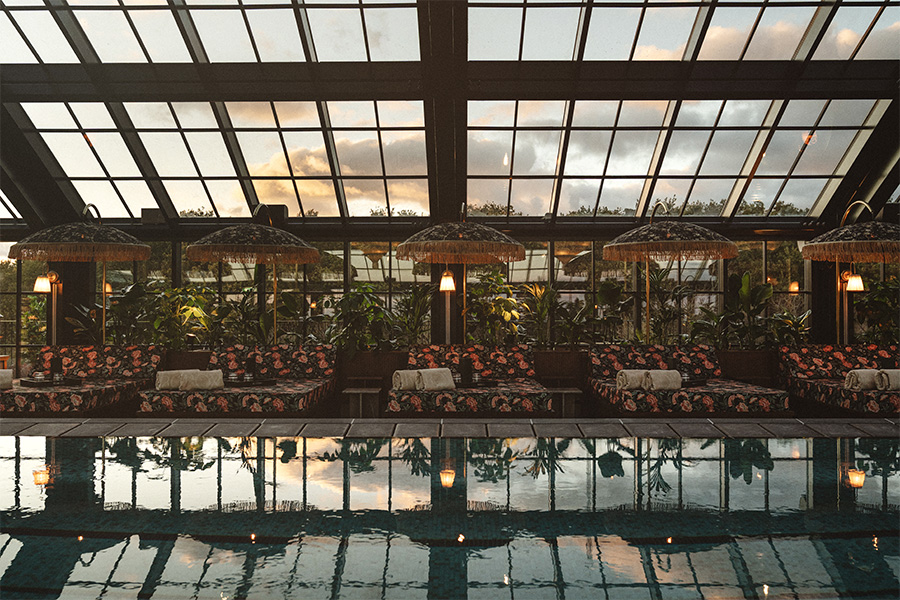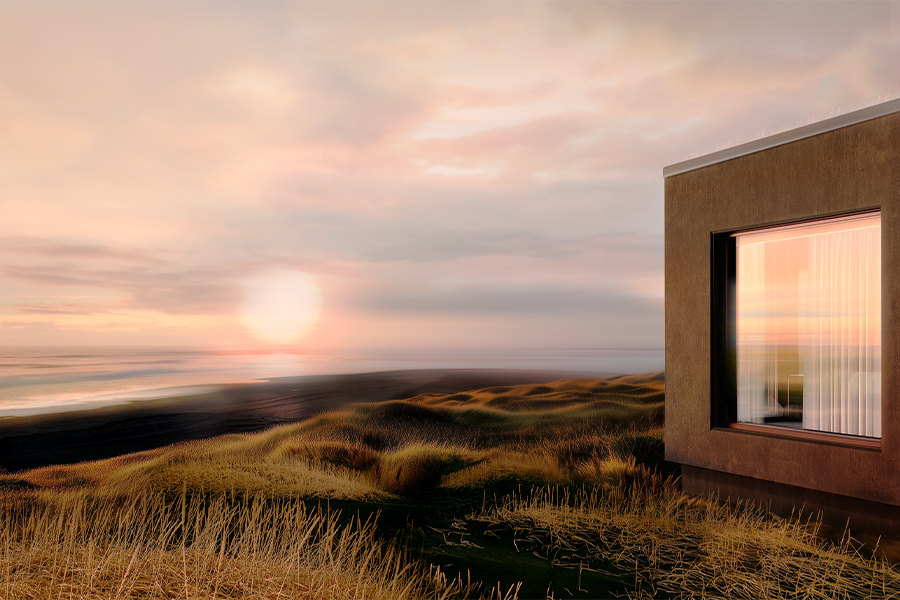Ticino, an alpine locale in southern Switzerland, is at the convergence of Mediterranean climate and Italian culture. This eclectic fusion is evident even in the architecture, with a regional vernacular that handsomely complements Ticino’s idyllic landscapes and diverse ecologies. For the forthcoming resort and development Lago Maggiore Retreat, Oppenheim Architecture aims to enhance this harmony.
“We studied the region and we wanted to make this fit,” Chad Oppenheim, founder of his Miami-based eponymous firm (with offices in Basel and New York), says of the project. “It was not about fitting a building but crafting a village and breaking down this scale to the scale you would have in the ancient-type architecture that existed.”
The Lago Maggiore Retreat will comprise three sites: an existing village that finds a new urban context through artisanal shops, a botanical garden, and a hamlet of rustic structures nestled into a chestnut forest that reinterprets a Ticinese hill town nearly 4,000 feet above Lake Maggiore. Spanning all of these components, the resort will be home to 108 private residences, as well as a 61-room wellness-focused boutique hotel. Locally sourced stone, infusing the property with a humble elegance thanks to its imperfect beauty, will be a key component of the material palette. Aged wood, along with the stucco and granite that will line the botanical garden, will also be employed to add texture.
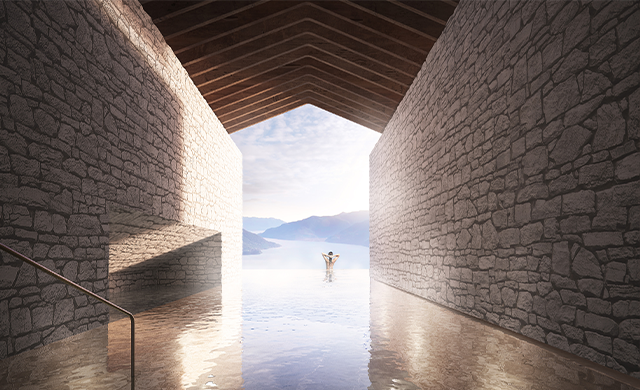
Wellness offerings will play a large role at Lago Maggiore, like this pool surrounded by local stone
While the retreat is slated to total more than 130,000 square feet, Oppenheim Architecture—in collaboration with the Locarno, Switzerland, architecture studio Aldo Cacchioli—will ensure minimal environmental impact and define the project with simple geometries and restrained palettes. “To create a large-scale building here would really disrupt the special things that make this setting so lovely,” Oppenheim says. As concerns related to COVID-19 remain top of mind for travelers, Oppenheim also posits that the project’s emphasis on Old World design principles will naturally support social distancing: “We like to rely more on sensitivities and ancient thinking than purely technologically driven solutions.”
The pandemic may now complicate the development timeline, but “the sense of the real” is what Oppenheim believes will draw travelers upon completion. “Hospitality is about sharing the culture holistically: architecture, art, craft furniture, food,” he says. “What is it that’s unique? We search for and try to capture this.”
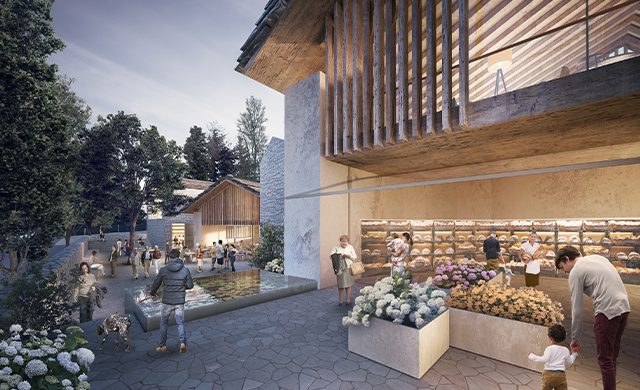
A collection of new shops will add a contemporary and convivial dimension to the village
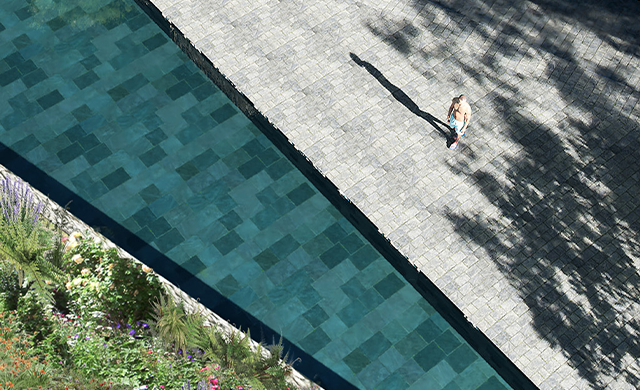
Nature will take centerstage throughout the property
This article originally appeared in HD’s November 2020 issue.


